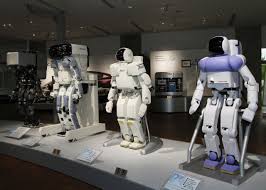Autonomous ‘Killer Robots’
The fascination with science fiction has suddenly become the face of reality with the ideological concept of ‘killer robots’. A killer robot is a fully autonomous weapon that can select and engage targets without the requirement of any human intervention. There have been debates lingering over the ethical stance behind the ideological concept. They haven’t yet come to existence but the rapid advancement of technology are bringing them closer to reality. The main concern over the use of killer robots: can we completely trust fully autonomous man-made machines with lethal weapons? Has our obsession with science fiction brainwashed our ethical mode of thought?
The United Nations have gathered many nations across the globe to discuss the ethical and moral use of killer robots in modern-day warfare. Head of the UN Conference on Disarmament opened the discussion in Geneva by stating, “All too often international law only responds to atrocities and suffering once it has happened. You have the opportunity to take pre-emptive action and ensure that the ultimate decision to end life remains firmly under human control”. However, Head of Arms Unit, Kathleen Lawand argues otherwise claiming that, “There is a sense of deep discomfort with the idea of allowing machines to make life-and-death decisions on the battlefield with little or no human involvement”. Though many nations were for or against killer robots, Dr Ronald Arkin of the Georgia Institute of Technology’s school of interactive computing, formulated a consensus as to why killer robots may not be as threatening as it appears to be. He asserts that robots could in fact reduce fatal casualties in warfare, but he also does stand by the idea of a temporary ban until these machines have proven they can abide by international law.
There are currently 117 parties involved in the convention, including the United States, Russia, China and Israel. These nations highly possess the capability to produce autonomous lethal technologies. The UN convention is aimed to come to a consensus on the definition of an autonomous weapon, which could vary in meaning from an autonomous ‘humanoid’ robot to a fully autonomous drone. In addition, the parries will deliberate over the legal and ethical issues behind the utility of such weapons.
The Human Rights Watch have issued a statement calling for a ban saying, “the weapons would face difficulties in meeting the requirements of international humanitarian law, such as upholding the principles of distinction and proportionality, in situations of armed conflict”. It is the fear of placing control in the hands of the robotic machines that causes immense opposition. There is the argument that world peace and security would be jeopardized. According to Pakistani’s UN ambassador Zamir Akram, “Lethal autonomous weapons systems are rightly described as the next revolution in military technology, on par with the introduction of gunpowder and nuclear weapons”. What Akram states is true. The emergence of weapons of mass destruction was only just the beginning of what’s yet ahead in military warfare. Several nations are fully devoted to producing the right technology to create a reeanactment of the fantasies of science fiction. However, the threat to humanity’s existence could pose a significant blow in the production of autonomous killer robots.




